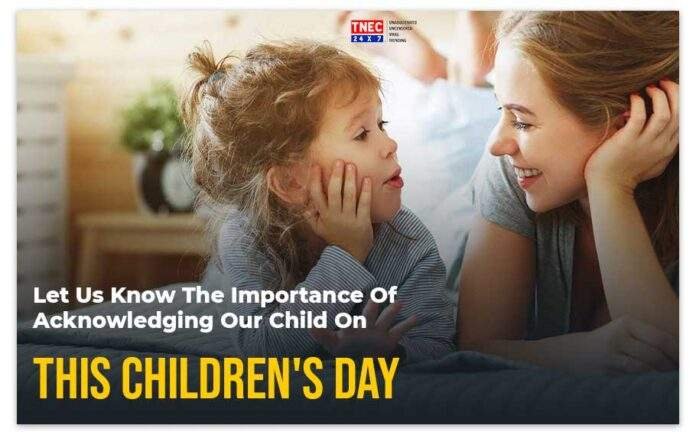“The children of today will make the India of tomorrow. The way we bring them up will determine the future of the country.” – Jawaharlal Nehru.
The birth anniversary of India’s first prime minister Dr. Jawaharlal Nehru is celebrated on November 14 every year to remember him in our thoughts towards his love for children and his vision towards the future of the nation.
How was Children’s Day initially started?

It began in 1857, when Children’s Day was celebrated by Reverend Dr. Charles Leonard in Chelsea, US. World Children’s Day was first celebrated in 1954 as Universal Children’s Day.
It is celebrated every year on 20 November to bring international oneness, awareness among children globally and to improve children’s well-being.
In the year of 1959, the UN General Assembly adopted the Declaration of the Rights of the Child and in 1989 the UN General Assembly adopted the Convention on the Rights of the Child.
Since its inception in 1990, World Children’s Day it is celebrated and observed as the anniversary that the UN General Assembly declared on the Declaration and the Convention of children’s rights.
Why do we Indians celebrate Children’s Day on 14 November?
Before 1964, India also celebrated Children’s Day on November 20. But after the death of Nehru in the year 1964, his birthday is celebrated as Children’s Day now. Children’s Day is observed to remember the affectionate ‘Chacha Nehru’, born on November 14, 1889.
What did Nehru do for the future of the nation?
Nehru built the Children’s Film Society India in 1955 to create cinemas only for kids. Nehru, apart from being an able ruler, made sure to enforce the establishment of some of the most prominent educational institutions in India like AIIMS, IIT, and IIM.
Nehru has given students their childhood and the path to glory leaving behind a legacy of imparting education for the future generations of India.
Are you aware enough about the protection of your child?
Children are the future assets of a country. Protecting the rights of children is not a less important task than any other job. The Constitution of India provides the rights to children which includes:
• Right to free and compulsory elementary education for all children in the 6-14 year age group.
• Right to be protected from any hazardous employment.
• Right to early childhood care and education.
• Right to be protected from abuse.
• Right to be protected from the economic necessity to enter occupations unsuited to their age or strength.
• Right to equal opportunities and facilities to develop healthily.
• Right to freedom and dignity and guaranteed protection of childhood and youth against exploitation.
Childhood is an important part of a person’s life. It brings all the necessary equipment that holds the function of all the machinery that is in store for the future. So to determine our child’s holistic approach towards life and society should be our major concern.












